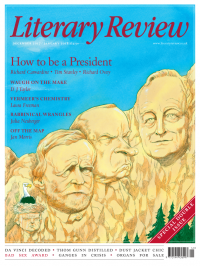Robin Oakley
War Horse
Churchill at the Gallop
By Brough Scott
Racing Post Books 229pp £25
Some years ago a framed quotation on a racehorse trainer’s wall taught me that Winston Churchill was not just the V-signing, cigar-champing saviour of the Western world but a committed horseman too. It read:
Don’t give your son money. As far as you can afford it, give him horses. No one ever came to grief – except honourable grief – through riding horses. No hour of life is lost that is spent in the saddle. Young men have often been ruined through owning horses, or through backing horses, but never through riding them; unless of course they break their necks, which, taken at the gallop, is a very good death to die.
Horses provided Churchill with an escape during a neglected childhood and were his transport in the wars he virtually ‘collected’ in his youth. They proved his pathway to regimental popularity (he played polo into his fifties), gave him his favourite form of exercise (he declared, ‘if there is a more admirable and elevating sport than fox hunting, it has yet to be discovered’) and in later years brought him pleasure as a racehorse owner. Brough Scott’s Churchill at the Gallop argues that horses bolstered the young Churchill’s stature at a time when he lacked it and offered him a chance to prove his courage. It is a wonder, though, that he himself did not die that ‘very good death’ early in his career.
Using the army shamelessly as a stepping stone towards a political career, the bumptious youth exploited his high-society connections to secure military posts and – to Kitchener’s fury – became an early ‘embedded’ correspondent, operating simultaneously as an officer and a well-paid journalist. Churchill first had bullets flying around him when he networked his way at the age of only twenty-one to Cuba to ride alongside the commander of the Spanish colonial forces. On India’s Northwest Frontier he played ‘for high stakes’, three times galloping a distinctive grey pony along the skirmish line.
Transferred to the 21st Lancers in Sudan, Churchill owed his life in September 1898 to another nimble little grey as he tangled in a headlong charge with the hacking blades of sixty thousand Mahdi Army Dervishes. Before the charge, the well-connected young officer had eaten with the director of Military Intelligence. ‘It was like a race luncheon at the Derby,’ wrote Churchill. Later, he noted of such battles: ‘Nobody expected to be killed. Here and there in every regiment or battalion, half a dozen, a score, at the worst 30 or 40, would pay the forfeit; but to the great mass of those who took part in the little wars of Britain in those vanished light-hearted days, this was only a sporting element in a splendid game.’
There was a more sensitive side to Churchill. Back in Africa in 1899 with a commission in the South African Light Horse, his reaction to the smashed Boer bodies left after one encounter was, ‘Ah, horrible war, amazing medley of the glorious and the squalid, the pitiful and the sublime, if modern men of light and leading saw your face closer, simple folk would see it hardly ever.’ Churchill became a hero when he escaped from Boer captivity, but after being unmounted, he survived one ambush only by vaulting up behind a scout, entreating him, ‘Give me a stirrup.’
Even as a full-time politician, Churchill’s equestrian pursuits continued. He was still playing polo for the Commons against the Lords in 1922. One three-week spell included nine days hunting, and as under-secretary of state for the colonies Churchill took a two-month summer holiday that began with gambling at Deauville. He then collected the equivalent of £122,000 today from The Strand magazine for a series of articles entitled ‘My African Journey’, chronicling with relish the ‘pig-sticking’ of warthogs and shooting a rhino. Imagine the fury of Fleet Street, says Scott, if a junior minister were to behave that way today.
Scott’s book, blessed with richly evocative photographs, wraps Churchill’s equestrian pursuits neatly into the context of his times. He knows his spendthrift hero’s weaknesses as well as his virtues and himself has ridden over many of the territories where Churchill adventured. Scott’s grandfather served alongside Churchill in Cabinet and, as the son and grandson of masters of foxhounds and himself a former jockey and racing correspondent, Scott gives us a true horseman’s view. His asides and personal examples are as enlightening as his narrative is vivid.

Sign Up to our newsletter
Receive free articles, highlights from the archive, news, details of prizes, and much more.@Lit_Review
Follow Literary Review on Twitter
Twitter Feed
Under its longest-serving editor, Graydon Carter, Vanity Fair was that rare thing – a New York society magazine that published serious journalism.
@PeterPeteryork looks at what Carter got right.
Peter York - Deluxe Editions
Peter York: Deluxe Editions - When the Going Was Good: An Editor’s Adventures During the Last Golden Age of Magazines by Graydon Carter
literaryreview.co.uk
Henry James returned to America in 1904 with three objectives: to see his brother William, to deliver a series of lectures on Balzac, and to gather material for a pair of books about modern America.
Peter Rose follows James out west.
Peter Rose - The Restless Analyst
Peter Rose: The Restless Analyst - Henry James Comes Home: Rediscovering America in the Gilded Age by Peter Brooks...
literaryreview.co.uk
Vladimir Putin served his apprenticeship in the KGB toward the end of the Cold War, a period during which Western societies were infiltrated by so-called 'illegals'.
Piers Brendon examines how the culture of Soviet spycraft shaped his thinking.
Piers Brendon - Tinker, Tailor, Sleeper, Troll
Piers Brendon: Tinker, Tailor, Sleeper, Troll - The Illegals: Russia’s Most Audacious Spies and the Plot to Infiltrate the West by Shaun Walker
literaryreview.co.uk